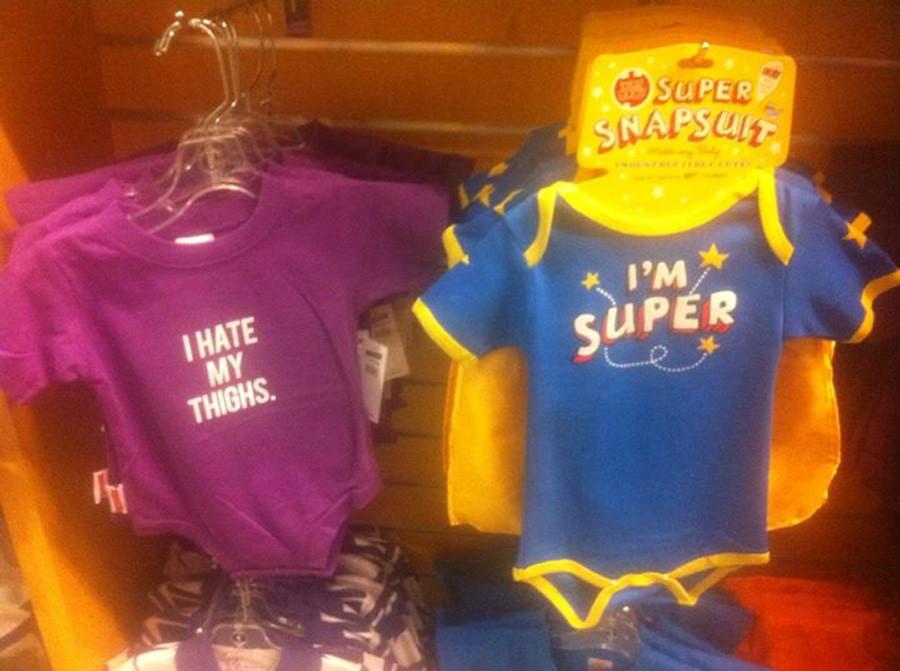Bookstore onesie sparks controversy
The NYU Bookstore is no longer selling the controversial onesies.
April 8, 2015
Last Thursday, NYU employee Jason Y. Evans snapped a photo in the NYU Bookstore of an “I hate my thighs” onesie right next to an “I’m super” onesie, for girls and boys respectively. He promptly posted it to Facebook with the caption “I had a very difficult time not raging out about this in the college store. These are onesies…for infants…guess which one is for girls and which one is for boys. THIS is the problem.”
Within minutes of the post, the NYU community, including several student and alumni groups, took to social media to express their outrage over the onesies.
Steinhardt junior Cassie Wuest tweeted, “why would anyone, let alone NYU, ever think it was okay to sell an ‘I hate my thighs’ onesie aimed at baby girls? I’m actually livid.” Twitter user @LaXicanista said, “I will give you side eye for years if I see you put your baby in a onesie that says, ‘I hate my thighs,’” and user @middleclasstool said, “If you’ve made anything like an ‘I hate my thighs’ onesie for a baby, may I suggest the wintry freshness of confronting your self-loathing?”
Social media users across various platforms repeatedly complained to the bookstore, and in fewer than eight hours, the store had removed the onesie from its shelves.
To many, it is shocking that a university bookstore had stocked the item in the first place, especially a university so renowned for its acceptance and diversity. After all, this is the same Wry Baby onesie that made international headlines two weeks ago for body-shaming baby girls.
The company responded to that original controversy in a seemingly ignorant way, claiming the onesie is “ironic,” which only further angered body-positive advocates.
Evan’s photograph has prompted another round of attention for the already highly-controversial brand because of the contrast between the girls’ body shaming onesie and the boys’ “I’m super” onesie. Having the two side-by-side only furthered the message that girls, even babies, need to be conscious of their appearance while young boys are being praised.
This is a particularly extreme example, but it is clear that body-shaming is starting to become an issue for young girls. It is a positive sign that the NYU community clearly demonstrated their disgust and had the clothes removed from the bookstore, and a good reminder that students have the power to influence aspects of NYU when we see something we do not agree with. Hopefully this will be the last time this particular onesie sees the shelves and also the last time we see our own bookstore exhibit such poor judgement.
A version of this article appeared in the April 8 print edition. Email Madison Reis at [email protected]
























































































































































